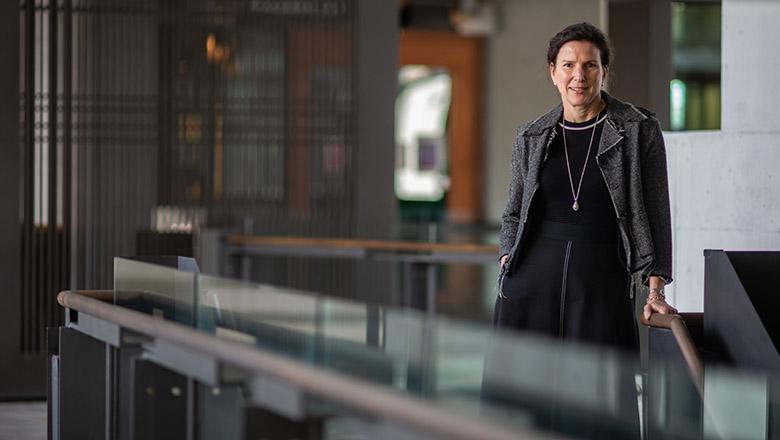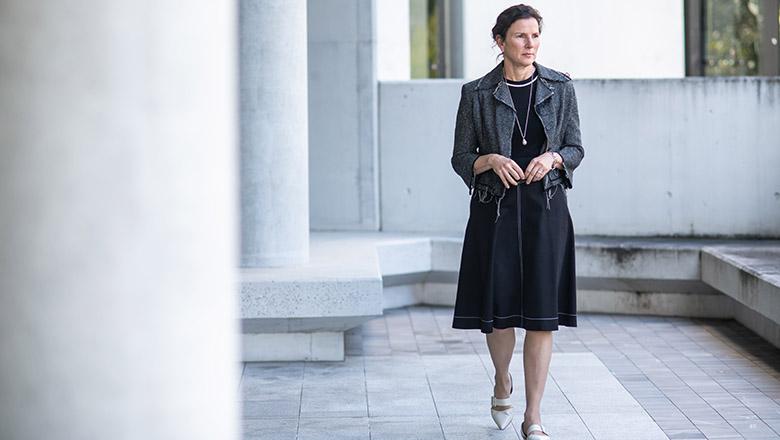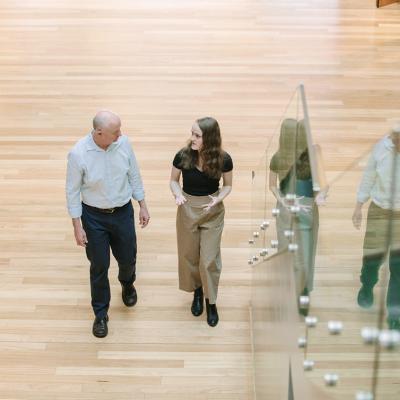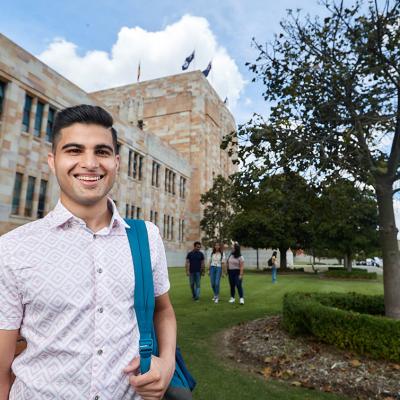Professor Elizabeth Eakin discusses ongoing global health challenges and navigating the age of misinformation.
If you’re holding your breath for the world to return to “normal”, you’ll be waiting for quite some time. According to Professor Elizabeth Eakin, we’ll likely never get back to how things were before 2020, the year many hoped would carry the coronavirus with it into history.
“The evidence tells us we will never be in a post-pandemic world,” says Liz.
“At least, not like the one in which we had become globally complacent."
“We’re going to be living with SARSCoV-2 and its variants, as well as new viruses and resistant bacteria, for the foreseeable future.”
The continuation of COVID-19 isn’t the only problem lurking on the horizon, either. As humanity continues to spread, developing more into wildlife habitats, the risk of encountering other animal-borne viruses grows.
Meanwhile, as climate change makes some food sources scarce, it forces those same animals out of their usual habitats and closer to human settlements. Climate change also contributes to increases in malnutrition, heat stress, natural disasters, and the geographic range of malaria and other diseases.
“We’re going to be living with these effects of climate change,” says Liz.
“It will take global cooperation, local action and evidence-informed public health to mitigate the impact.”

Evidence-informed public health is indeed the ray of sunshine amid the doom and gloom here. Public health professionals now have – more than ever – a vital role to play in keeping everyone well informed, up-to-date and healthy.
“They are on the front lines facing all the global challenges that will profoundly shape the future of human health for the rest of this century and beyond,” says Liz.
But these professionals don’t just spring into being. It takes experience and education to tackle such pressing issues.
As the head of UQ’s School of Public Health, Liz oversees programs including the Master of Public Health (MPH), which is designed to prepare students to make a difference in a world full of health problems.
“Master of Public Health graduates will be part of the multidisciplinary and systems-based solutions to all these challenges,” says Liz.
“The MPH equips graduates with the skills to address the types of major public health challenges we’ve been talking about.”
Primary among these skills are:
- understanding the importance of evidence-based public health
- critically evaluating the evidence available
- communicating that evidence to the public
- designing research that generates new knowledge.
“Our Master of Public Health seeks to train the next generation of public health leaders to engage a diverse range of stakeholders, use evidence to build consensus, design and evaluate policies and programs, and lead change locally and globally.”
Other global public health challenges include:
- new and re-emerging infectious diseases
- obesity and related co-morbidities
- mental health problems
- socio-economic disparities including the impacts of colonisation and systemic racism on the world’s Indigenous populations
- the ways in which all the above challenges are magnified in vulnerable groups and countries with low-to-middle income.
“These major challenges are here, and they aren’t going away.”

Unmasking fake news in the age of misinformation
If keeping the public well informed about health issues sounds like an uphill battle, that’s because it is. With such a blurred line between news sources and social media, the prevalence of false information creates a unique challenge for public health professionals. This has been especially problematic during the coronavirus pandemic.
“We’ve seen lots of misinformation about COVID-19 and now about the COVID-19 vaccine,” says Liz.
“A very low-rate risk of blood clotting from the AstraZeneca vaccine has unfortunately overshadowed key messaging about the importance of getting vaccinated at the first opportunity.”
While the fight against this type of misinformation falls to the public health experts who are responsible for ensuring health messages are clear and based on evidence, the rest of us aren’t quite off the hook. It’s up to everyone to become informed citizens, which sometimes means taking headlines with a grain of salt and looking deeper for information.
“It’s all of our responsibility,” says Liz.
“So much of what’s on social media is based on one person’s opinion and not fact. It’s really important to know what the credible sources of information are and to fact-check any health advice seen on social media with those sources.”
Where to go for credible information
Not sure where to look for general health advice or to verify a claim on social media? Liz recommends these as excellent sources:
- government websites such as Queensland Health
- NGO websites such as the Cancer Council or Heart Foundation
- university websites
- non-commercial media platforms committed to fact-checking such as the ABC and The Conversation.
And when you need advice for your individual health, your GP should always be your first stop.
Discover UQ's Master of Public Health Explore all of UQ's postgraduate study options





